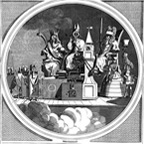ABSTRACT
Sebbene la disciplina della legge elettorale negli ordinamenti italiano e tedesco non risulti oggetto di una specifica previsione costituzionale, tale ambito è recentemente divenuto un importante terreno di conflitto tra il legislatore e il giudice costituzionale. Si è infatti determinato un crescente attivismo del giudice delle leggi, volto a definire i limiti costituzionali entro cui tale potere deve esercitarsi. La “convergenza” registratasi tra le Corti Costituzionali italiana e tedesca, oltre che sull’interpretazione di determinate clausole costituzionali, sembra vertere sulla comune consapevolezza del rischio di “irragionevolezza” a cui risultano costantemente esposti i sistemi elettorali “misti”.
Although the regulation of electoral law in the Italian and German legal systems is not the subject of a specific constitutional provision, this area has recently become an important area of conflict between the legislator and the constitutional judge. In fact, there has been a growing activism of the judge of laws, aimed at defining the constitutional limits within which this power must be exercised. The “convergence” registered between the Italian and German Constitutional Courts, as well as on the interpretation of certain constitutional clauses, seems to concern the common awareness of the risk of “unreasonableness” to which “mixed” electoral systems are constantly exposed.
PAROLE CHIAVE: Corte Costituzionale; legge elettorale, referendum abrogativo; sistemi elettorali, Bundesverfassungsgericht.
KEYWORDS: Constitutional Court; electoral law, abrogative referendum; electoral systems, Bundesverfassungsgericht.
Scarica il testo in formato PDF
Sommario: 1. Introduzione. – 2. L’esempio tedesco: la giurisprudenza del Bundesverfassungsgericht in materia elettorale. – 3. L’orientamento della Corte Costituzionale italiana in tema di referendum abrogativo in materia elettorale. – 4. Principi costituzionali e legge elettorale nell’ordinamento italiano. – 5. Conclusione






